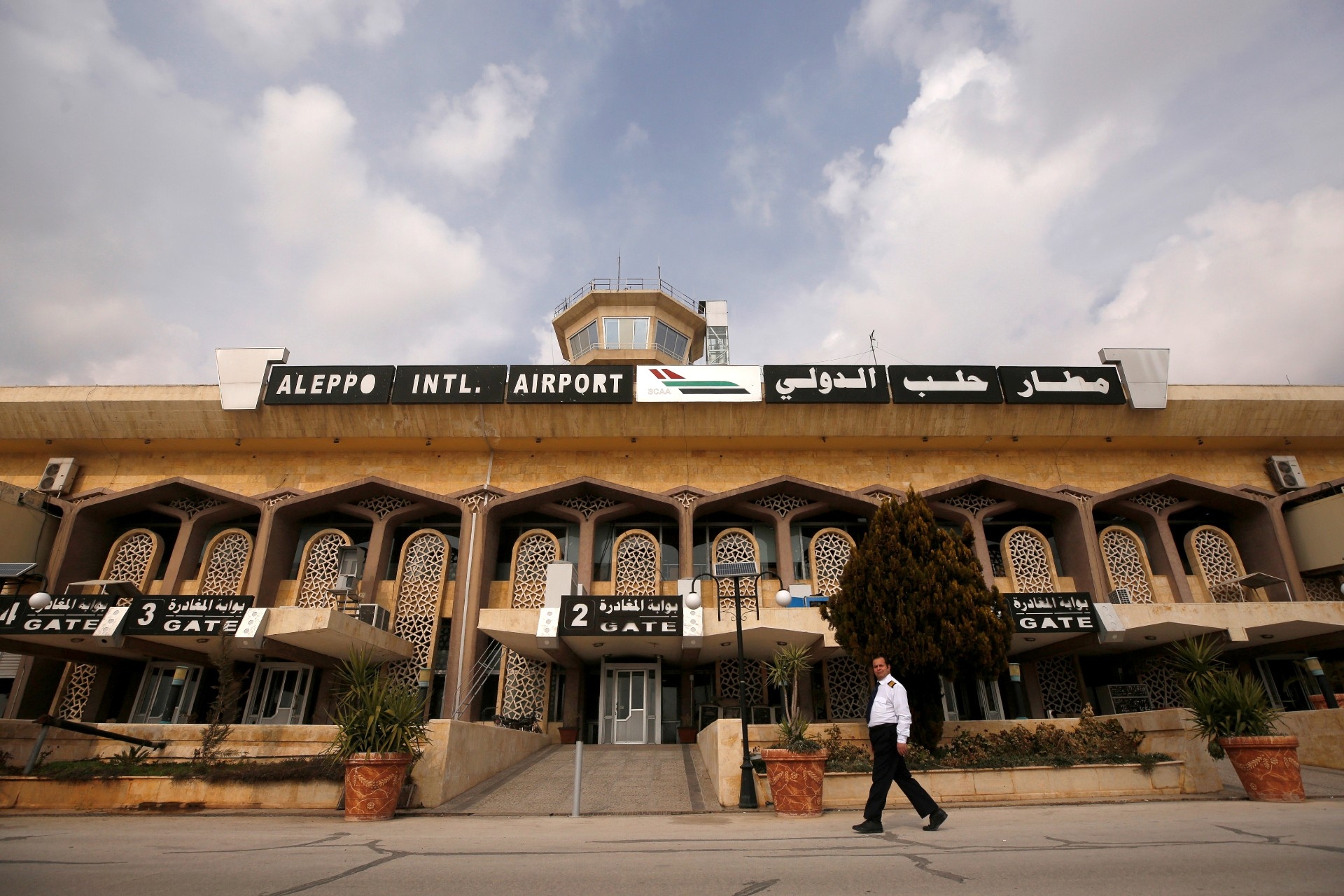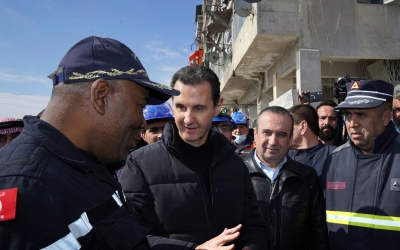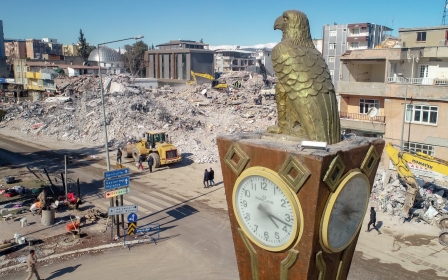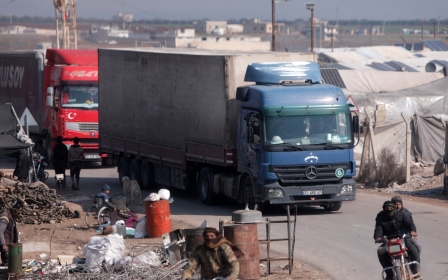Israeli strikes on Aleppo airport impede lifesaving aid, UN says

Air strikes on Syria’s Aleppo airport, believed to be conducted by Israel, are impeding the delivery of life-saving humanitarian aid to earthquake victims, the UN said on Wednesday.
The airport came under attack by Israeli jets on Tuesday, the Syrian government said, forcing Damascus to reroute all flights carrying earthquake aid either to Damascus or Latakia.
“The closure could have severe humanitarian implications for people in Aleppo, one of the worst earthquake-impacted governorates in Syria,” El-Mostafa Benlamlih, the UN resident coordinator in Syria, said in a statement.
The air strikes have delayed the delivery of life-saving health supplies like tetanus vaccines, diabetes medication, and blood transfusion equipment, the statement added.
The strikes have forced the UN to suspend their own flights as part of the UN Humanitarian Air Service (UNHAS) until at least 10 March.
"The impact of this closure impedes humanitarian access and could have drastic humanitarian consequences for millions of people who have been affected by the earthquake,” Benlamlih said.
The Aleppo airport has been a main delivery point for aid deliveries from regional countries like Saudi Arabia and the UAE as well. The earthquakes that struck Turkey and Syria a month ago left more than 50,000 dead, including around 6,000 in Syria, sparking a humanitarian crisis.
Israel has conducted hundreds of air strikes in Syria since 2011, targeting government troops, Iran-backed fighters and Hezbollah members. However, targeting airports and paralysing aviation has become more frequent in recent months.
At the start of this year, the Israeli military attacked Damascus International Airport, rendering it temporarily out of service and leaving two Syrian soldiers dead.
Last month, at least five people were killed when suspected Israeli air strikes hit residential neighbourhoods and other locations in Damascus.
The quake response has been caught up in debates over Syria’s civil war. Residents of opposition-held territory in the northwest, along with rights groups, have criticised the UN’s slow response to the catastrophe, which disrupted the only international border crossing into Syria.
President Bashar al-Assad and his Russian backers have long tried to limit aid moving directly into rebel-held territory. Last Month, Assad said he would allow the Bab al-Salam and Al Ra’ee border crossings from Turkey to northwest Syria to open for three months for aid deliveries.
Analysts and regional officials have described the disaster as an "inflection point" in Assad’s efforts to reemerge from nearly a decade of isolation following his country’s war. In February, the US announced it was easing sanctions on Syria for 180 days for transactions related to earthquake relief efforts.
This article is available in French on Middle East Eye French edition.
Middle East Eye propose une couverture et une analyse indépendantes et incomparables du Moyen-Orient, de l’Afrique du Nord et d’autres régions du monde. Pour en savoir plus sur la reprise de ce contenu et les frais qui s’appliquent, veuillez remplir ce formulaire [en anglais]. Pour en savoir plus sur MEE, cliquez ici [en anglais].





